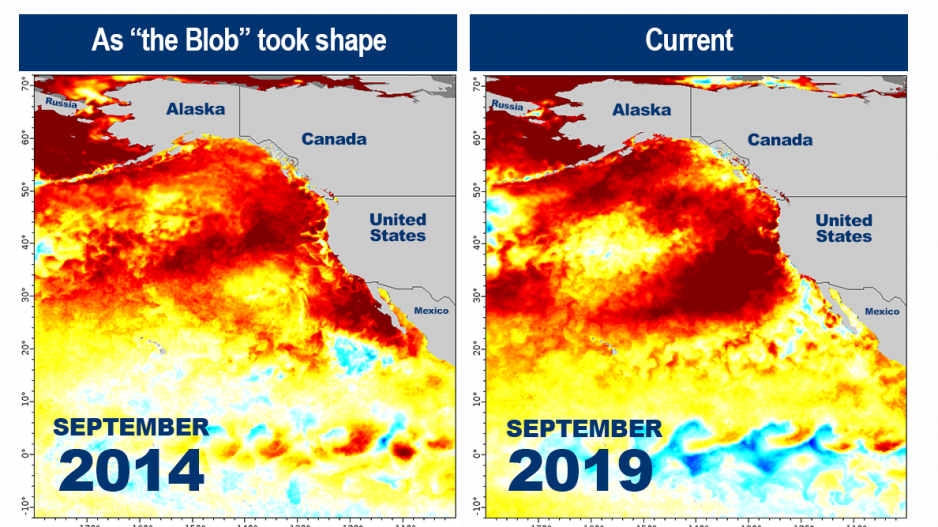A new study by researchers at University of British Columbia say marine heat waves, like the one experienced a few years ago with the Pacific Ocean "blob," could decrease fish stocks by 6% per year.
Researchers for the UBC Institute for the Oceans and Fisheries used modelling to estimate the impact of periodic heat waves in the ocean, like the "blob" that occurred a few years ago in the northern Pacific Ocean.
They conclude in a study published in Science Advances that sockeye salmon catches could decrease by 26%, on average, during high temperature events between 2000 and 2050. That would be an annual loss of 260 to 520 tonnes of fish.
"With losses due to climate change, when a temperature extreme occurs in the 2050s, the total decrease in annual catch would be more than 50 per cent or 530 to 1060 tonnes of fish," the researchers say in a press release.
"During extreme ocean temperature events and on top of projected temperature changes each decade, researchers projected that fisheries’ revenues would be cut by an average of three per cent globally, and employment by two percent; a potential loss of millions of jobs."
They estimate Peruvian anchoveta catches could decline by 34% during an extreme high temperature event between 2000 and 2050.




